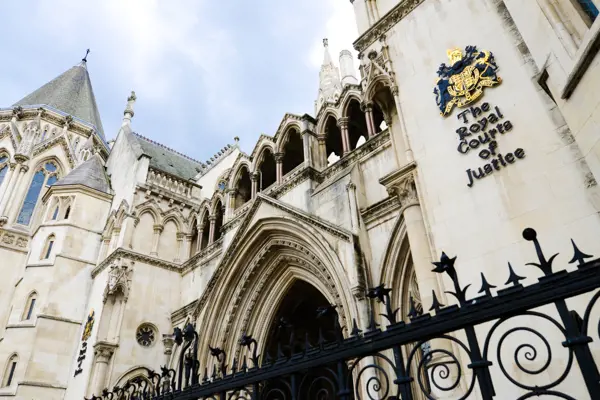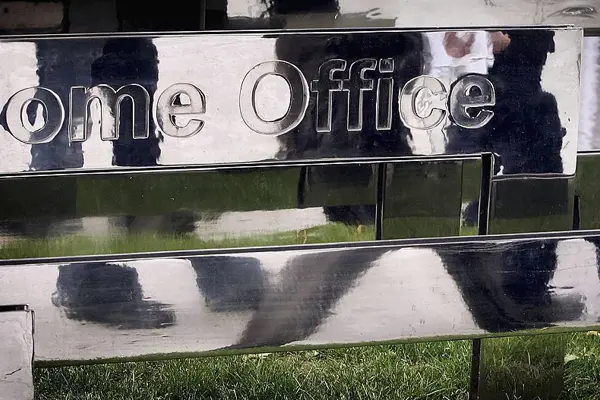Peruvian torture claimants compensated by UK mining company
Monterrico Metals PLC settles Peruvian cases without admission of liability
Posted on 20 July 2011
Legal proceedings by 33 Peruvians against UK-based Monterrico Metals PLC have been settled by compensation payments, without admitting liability. The London High Court trial was scheduled for 10 weeks from October with about 80 claimant witnesses. Claimants alleged torture by the Peruvian Police after protesting at Monterrico's Rio Blanco copper mine (near Ecuador) in August 05. The mine is owned by Monterrico Peruvian subsidiary, Rio Blanco Copper SA (“RBC”). RBC is owned (through two Cayman companies) by Monterrico.
Ex-mine employees and others gave testimony. The claimants argued Monterrico was complicit in torture/mistreatment, alleging as follows (all of which Monterrico denies): the mine camp manager, Roman Tirado, calling the protesters terrorist members of “Shining Path”, incited the police to attack and mistreat them; some employees and the mine security contractor, Forza (now owned by Securitas (Sweden), participated in the mistreatment (including capturing, beating and taunting protesters, carrying police munitions, providing sacks and ropes to detain protesters); the company failed to prevent the mistreatment that occurred over 2-3 days on the mine premises; Mr Tirado instructed employees to move the body of Melanio Garcia (a protester who had been killed) far away.
Rio Blanco was Monterrico’s principal asset. Monterrico founding director and Chief Operating Officer, Ray Angus (Australian engineer), was also General Manager of RBC based in Peru. Witnesses claimed Angus regularly contacted Mr Tirado during the incident. Claimants alleged Monterrico controlled the Peruvian operation and that RBC was, in effect, the same legal entity as Monterrico.
Contemporaneous photographs show protesters hooded, handcuffed and injured. The claimants alleged (and Monterrico denies) they were beaten, abused, threatened (including with rape and death), two women were sexually abused, they forcibly ate rotten food and were detained on a wet platform for slaughtering animals. Five claimants were shot; one lost an eye. Eminent Maudsley Hospital psychiatrists confirmed that most claimants still suffer from PTSD, some very severely. Claimant, Elizabeth Cunya Novillo, stated: 'The three days of detention were some of the worst of my life. When I was beaten it changed my whole world...it was as though a tornado had destroyed everything'. Another, Senesio Jimenez, stated: “When we arrived for talks they ejected us with beatings and bullets, they tortured us on our own land. A peasant is sometimes treated like an animal with no right to live, they have no compassion. I thought there was no hope of justice. Every day I remember the beatings and abuse. I cannot forget it. At work those thoughts won't go. I despair that my land will disappear.”
We have seen no evidence suggesting the company complained about the police conduct or investigated the protesters’ mistreatment. But the claimants were criminally charged over the protest (and other unrelated matters) allegedly supported by the company.
Claimants also alleged the incident formed part of the company’s strategy designed to suppress opposition including: an attack (April 06) organised by RBC on the peasant community of Segunda Cajas, by about 80 people with sticks and stones resulting in excessive force by police against the villagers; various other provocative and violent incidents organised by the company between January and April 2006 to intimidate opponents of the mine and justify establishing a police presence locally. All this is denied by Monterrico.
In September 2006, RBC wrote to the communities expressing its: “most deeply felt apologies for attitudes and conflicts that in the past have occurred between certain of its staff and workers, and some families, and organisations and community leaders of the provinces of Huancabamba and Ayabaca. The people associated with these conflicts have been seriously reprimanded and permanently separated from our company, as an expression of the desire among the Directors of [RBC] that such attitudes are never again repeated in the future… As an expression of our good will… from here on [RBC] will initiate no more legal proceedings; this will be the role solely of the public prosecutor”. Monterrico however denies that this apology was related to the August 2005 incident.
The case appears to highlight conflicts in Peru and elsewhere between indigenous communities and multinational mining operations. This protest was triggered by the local communities’ belief that their concerns regarding the mine’s potential environmental impact were being ignored. In 2006 the National Ombudsman (Peru) concluded that the company was occupying the land unlawfully because there was no requisite consent of the communities. Monterrico disputes this. The issue is the subject of ongoing proceedings in Peru.
In February 2009 US-based Environmental Defender Law Center contacted Leigh Day & Co (“LDC”) about the case. LDC then liaised with Lima-based human rights lawyers from Fedepaz and the Coordinadora, who assisted the Claimants to defend the above-mentioned criminal charges. Monterrico was bought by Zijin Consortium (China), in 2008, whence Monterrico corporate HQ shifted to Hong Kong. LDC was concerned that Monterrico would close its UK office rendering any claim in England futile (NB not suggested that this was Monterrico’s objective). So when proceedings began in the London High Court in June 09, Claimants obtained a worldwide freezing injunction over £5 million of Monterrico’s assets, supported by an injunction from the Hong Kong High Court obtained by Gall lawyers.
Richard Meeran of Leigh Day & Co said:
“Our clients suffered deplorable mistreatment and were denied justice in Peru. This was an extremely costly exercise for Monterrico and constitutes a salutary lesson to multinationals operating in developing countries.”
For further information please contact Richard Meeran on +44 (0)20 7650 1200.
Information was correct at time of publishing. See terms and conditions for further details.
Ex-mine employees and others gave testimony. The claimants argued Monterrico was complicit in torture/mistreatment, alleging as follows (all of which Monterrico denies): the mine camp manager, Roman Tirado, calling the protesters terrorist members of “Shining Path”, incited the police to attack and mistreat them; some employees and the mine security contractor, Forza (now owned by Securitas (Sweden), participated in the mistreatment (including capturing, beating and taunting protesters, carrying police munitions, providing sacks and ropes to detain protesters); the company failed to prevent the mistreatment that occurred over 2-3 days on the mine premises; Mr Tirado instructed employees to move the body of Melanio Garcia (a protester who had been killed) far away.
Rio Blanco was Monterrico’s principal asset. Monterrico founding director and Chief Operating Officer, Ray Angus (Australian engineer), was also General Manager of RBC based in Peru. Witnesses claimed Angus regularly contacted Mr Tirado during the incident. Claimants alleged Monterrico controlled the Peruvian operation and that RBC was, in effect, the same legal entity as Monterrico.
Contemporaneous photographs show protesters hooded, handcuffed and injured. The claimants alleged (and Monterrico denies) they were beaten, abused, threatened (including with rape and death), two women were sexually abused, they forcibly ate rotten food and were detained on a wet platform for slaughtering animals. Five claimants were shot; one lost an eye. Eminent Maudsley Hospital psychiatrists confirmed that most claimants still suffer from PTSD, some very severely. Claimant, Elizabeth Cunya Novillo, stated: 'The three days of detention were some of the worst of my life. When I was beaten it changed my whole world...it was as though a tornado had destroyed everything'. Another, Senesio Jimenez, stated: “When we arrived for talks they ejected us with beatings and bullets, they tortured us on our own land. A peasant is sometimes treated like an animal with no right to live, they have no compassion. I thought there was no hope of justice. Every day I remember the beatings and abuse. I cannot forget it. At work those thoughts won't go. I despair that my land will disappear.”
We have seen no evidence suggesting the company complained about the police conduct or investigated the protesters’ mistreatment. But the claimants were criminally charged over the protest (and other unrelated matters) allegedly supported by the company.
Claimants also alleged the incident formed part of the company’s strategy designed to suppress opposition including: an attack (April 06) organised by RBC on the peasant community of Segunda Cajas, by about 80 people with sticks and stones resulting in excessive force by police against the villagers; various other provocative and violent incidents organised by the company between January and April 2006 to intimidate opponents of the mine and justify establishing a police presence locally. All this is denied by Monterrico.
In September 2006, RBC wrote to the communities expressing its: “most deeply felt apologies for attitudes and conflicts that in the past have occurred between certain of its staff and workers, and some families, and organisations and community leaders of the provinces of Huancabamba and Ayabaca. The people associated with these conflicts have been seriously reprimanded and permanently separated from our company, as an expression of the desire among the Directors of [RBC] that such attitudes are never again repeated in the future… As an expression of our good will… from here on [RBC] will initiate no more legal proceedings; this will be the role solely of the public prosecutor”. Monterrico however denies that this apology was related to the August 2005 incident.
The case appears to highlight conflicts in Peru and elsewhere between indigenous communities and multinational mining operations. This protest was triggered by the local communities’ belief that their concerns regarding the mine’s potential environmental impact were being ignored. In 2006 the National Ombudsman (Peru) concluded that the company was occupying the land unlawfully because there was no requisite consent of the communities. Monterrico disputes this. The issue is the subject of ongoing proceedings in Peru.
In February 2009 US-based Environmental Defender Law Center contacted Leigh Day & Co (“LDC”) about the case. LDC then liaised with Lima-based human rights lawyers from Fedepaz and the Coordinadora, who assisted the Claimants to defend the above-mentioned criminal charges. Monterrico was bought by Zijin Consortium (China), in 2008, whence Monterrico corporate HQ shifted to Hong Kong. LDC was concerned that Monterrico would close its UK office rendering any claim in England futile (NB not suggested that this was Monterrico’s objective). So when proceedings began in the London High Court in June 09, Claimants obtained a worldwide freezing injunction over £5 million of Monterrico’s assets, supported by an injunction from the Hong Kong High Court obtained by Gall lawyers.
Richard Meeran of Leigh Day & Co said:
“Our clients suffered deplorable mistreatment and were denied justice in Peru. This was an extremely costly exercise for Monterrico and constitutes a salutary lesson to multinationals operating in developing countries.”
For further information please contact Richard Meeran on +44 (0)20 7650 1200.
Information was correct at time of publishing. See terms and conditions for further details.

